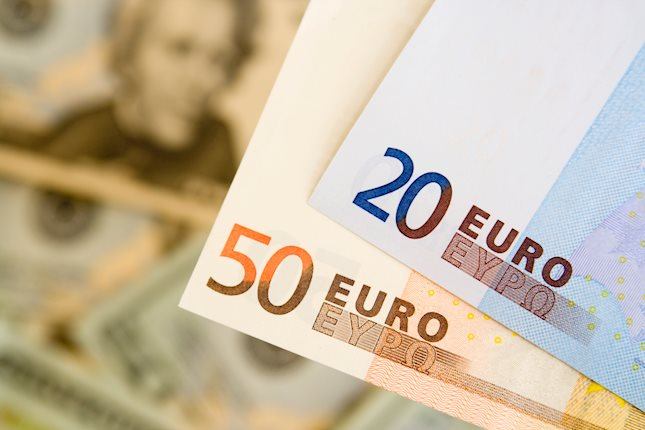- GBP/JPY consolidates in a range on Tuesday amid mixed fundamental cues.
- The BoJ rate hike uncertainty undermines the JPY and supports spot prices.
- The BoE’s dovish stance keeps the GBP bulls on the defensive and caps gains.
- Intervention fears should further contribute to keeping a lid on the cross.
The GBP/JPY cross struggles for a firm intraday direction and oscillates in a narrow trading band, below the 197.00 round-figure mark through the first half of the European session on Tuesday. Moreover, the mixed fundamental backdrop warrants caution before positioning for the near-term trajectory amid mixed fundamental backdrop and thin trading volumes on Christmas Eve.
The Japanese Yen (JPY) continues with its relative underperformance in the wake of the uncertainty over when the Bank of Japan (BoJ) will hike interest rates again. In fact, the Japanese central bank offered few clues on how soon it could push up borrowing costs at the end of the December policy meeting. Moreover, BoJ Governor Kazuo Ueda last week opened up the possibility of waiting longer for the next hike and said that the central bank will need a little bit more info on wage trends. This, along with a generally positive risk tone, continues to undermine the Japanese Yen (JPY) and acts as a tailwind for the GBP/JPY cross.
Meanwhile, data released last Friday showed that Japan's core inflation accelerated in November and left the door open for a potential BoJ rate hike in January or March. Furthermore, speculations that Japanese authorities might intervene to prop up the domestic currency hold back traders from placing aggressive bearish bets around the JPY. Japan's Finance Minister Katsunobu Kato warned against excessive foreign exchange moves and reiterated earlier this Tuesday that the government is ready to act to stabilise the domestic currency. Apart from this, persistent geopolitical risks and trade war fears support the safe-haven JPY.
The British Pound (GBP), on the other hand, is undermined by the Bank of England's (BoE) split vote decision to leave interest rates unchanged last week and a dovish outlook It is worth mentioning that three members of the BoE's MPC voted to reduce rates. Moreover, policymakers downgraded their economic forecast for the fourth quarter of 2024. This might further contribute to capping the upside for the GBP/JPY cross. Hence, it will be prudent to wait for sustained strength and acceptance above the 197.00 mark before positioning for an extension of the monthly uptrend from the vicinity of the 188.00 round-figure mark.
Japanese Yen FAQs
The Japanese Yen (JPY) is one of the world’s most traded currencies. Its value is broadly determined by the performance of the Japanese economy, but more specifically by the Bank of Japan’s policy, the differential between Japanese and US bond yields, or risk sentiment among traders, among other factors.
One of the Bank of Japan’s mandates is currency control, so its moves are key for the Yen. The BoJ has directly intervened in currency markets sometimes, generally to lower the value of the Yen, although it refrains from doing it often due to political concerns of its main trading partners. The BoJ ultra-loose monetary policy between 2013 and 2024 caused the Yen to depreciate against its main currency peers due to an increasing policy divergence between the Bank of Japan and other main central banks. More recently, the gradually unwinding of this ultra-loose policy has given some support to the Yen.
Over the last decade, the BoJ’s stance of sticking to ultra-loose monetary policy has led to a widening policy divergence with other central banks, particularly with the US Federal Reserve. This supported a widening of the differential between the 10-year US and Japanese bonds, which favored the US Dollar against the Japanese Yen. The BoJ decision in 2024 to gradually abandon the ultra-loose policy, coupled with interest-rate cuts in other major central banks, is narrowing this differential.
The Japanese Yen is often seen as a safe-haven investment. This means that in times of market stress, investors are more likely to put their money in the Japanese currency due to its supposed reliability and stability. Turbulent times are likely to strengthen the Yen’s value against other currencies seen as more risky to invest in.
Information on these pages contains forward-looking statements that involve risks and uncertainties. Markets and instruments profiled on this page are for informational purposes only and should not in any way come across as a recommendation to buy or sell in these assets. You should do your own thorough research before making any investment decisions. FXStreet does not in any way guarantee that this information is free from mistakes, errors, or material misstatements. It also does not guarantee that this information is of a timely nature. Investing in Open Markets involves a great deal of risk, including the loss of all or a portion of your investment, as well as emotional distress. All risks, losses and costs associated with investing, including total loss of principal, are your responsibility. The views and opinions expressed in this article are those of the authors and do not necessarily reflect the official policy or position of FXStreet nor its advertisers. The author will not be held responsible for information that is found at the end of links posted on this page.
If not otherwise explicitly mentioned in the body of the article, at the time of writing, the author has no position in any stock mentioned in this article and no business relationship with any company mentioned. The author has not received compensation for writing this article, other than from FXStreet.
FXStreet and the author do not provide personalized recommendations. The author makes no representations as to the accuracy, completeness, or suitability of this information. FXStreet and the author will not be liable for any errors, omissions or any losses, injuries or damages arising from this information and its display or use. Errors and omissions excepted.
The author and FXStreet are not registered investment advisors and nothing in this article is intended to be investment advice.
Recommended content
Editors’ Picks

EUR/USD stays near 1.0400 in thin holiday trading
EUR/USD trades with mild losses near 1.0400 on Tuesday. The expectation that the US Federal Reserve will deliver fewer rate cuts in 2025 provides some support for the US Dollar. Trading volumes are likely to remain low heading into the Christmas break.

GBP/USD struggles to find direction, holds steady near 1.2550
GBP/USD consolidates in a range at around 1.2550 on Tuesday after closing in negative territory on Monday. The US Dollar preserves its strength and makes it difficult for the pair to gain traction as trading conditions thin out on Christmas Eve.

Gold holds above $2,600, bulls non-committed on hawkish Fed outlook
Gold trades in a narrow channel above $2,600 on Tuesday, albeit lacking strong follow-through buying. Geopolitical tensions and trade war fears lend support to the safe-haven XAU/USD, while the Fed’s hawkish shift acts as a tailwind for the USD and caps the precious metal.

IRS says crypto staking should be taxed in response to lawsuit
In a filing on Monday, the US International Revenue Service stated that the rewards gotten from staking cryptocurrencies should be taxed, responding to a lawsuit from couple Joshua and Jessica Jarrett.

2025 outlook: What is next for developed economies and currencies?
As the door closes in 2024, and while the year feels like it has passed in the blink of an eye, a lot has happened. If I had to summarise it all in four words, it would be: ‘a year of surprises’.

Best Forex Brokers with Low Spreads
VERIFIED Low spreads are crucial for reducing trading costs. Explore top Forex brokers offering competitive spreads and high leverage. Compare options for EUR/USD, GBP/USD, USD/JPY, and Gold.